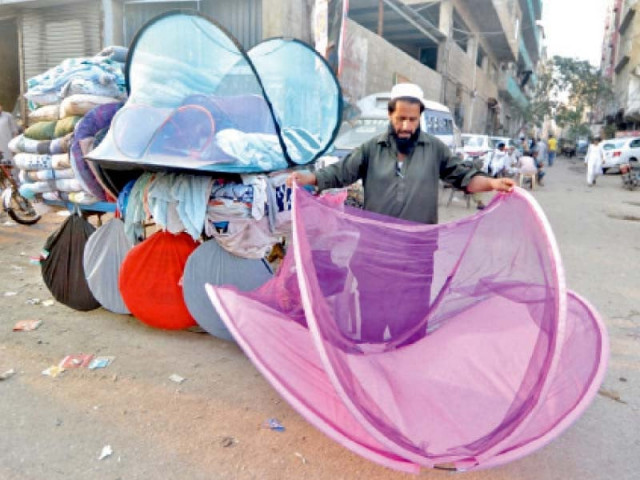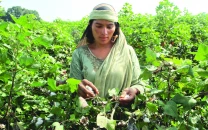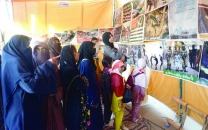Metropolis plagued by dengue spurt
Quantum jump in cases causes shortage of platelets, medicines, mosquito nets

A surge in dengue cases following the heavy rains this monsoon seasons has overwhelmed hospitals in the metropolitan city as the buzz of mosquitos has become a sound of terror for citizens.
Alarmingly, 75 per cent of patients visiting hospitals for medical consultation for fever, body aches, pain and rashes are diagnosed with dengue hemorrhagic fever.
According to the Sindh Health Department, 3,667 dengue cases have been reported across the province so far this year. Of them, 3,273 have been in Karachi alone. September has been of particular concern as 1,066 cases of the vector-borne disease have emerged in the first two weeks of this month, at least 115 of them on Tuesday.
Further breakdown shows East District has been the worst hit with 1,319 cases, followed by Central District with 780 cases, Korangi District with 181 cases, South District with 623 cases, West District with 99 cases, Malir District with 147 cases, and Keamari district with 124 cases. The deadly fever has claimed nine lives in Karachi so far this year - six of them in East District.
Platelets shortage
The platelets count in dengue fever drops because the blood cells are affected by the virus that causes platelet damage. Platelet transfusions are given to patients to prevent hemorrhagic complications. But the quantum jump in the dengue positive cases across Sindh, particularly in Karachi, has created acute shortage of platelets which is giving jitters to hospitals.
Sources said that the type of dengue virus strain prevalent in the city this year requires mega platelets for treatment because manual platelets are not effective. There is crisis situation in the city, but the government has not formulated any strategy to deal with it. Blood banks have appealed for donations so that platelets could be extracted to meet the increasing demand of these vital blood cells.
What caused the dengue spike?
The heavy and prolonged monsoon rains took a heavy toll on the city's drainage and sewerage system which collapsed, inundating streets, roads and entire neighborhoods with stinking sewage-mixed slush and turning them into breeding grounds for mosquitos, according to health experts. These mosquitoes are now spreading different diseases in the city, dengue and malaria in particular.
According to residents, municipal authorities have done nothing to fumigate breeding grounds of mosquitoes or to spray insecticides in the city's most vulnerable areas to control mosquito population. Now, Karachiites have started doing whatever they can do to protect themselves against these disease carriers.
A survey by The Express Tribune shows that mosquito nets and insect repellants are in high demand which, in turn, have led to their shortage in the market. A six-foot mosquito net, which was earlier available for Rs700, is now selling for Rs1,400.
Medicine shortage?
The massive increase in waterborne and mosquito-borne diseases has also resulted in a huge demand for OTC pain and fever relievers, Panadol in particular. A 20-strip box of Panadol was earlier selling for Rs340. But now it has virtually disappeared from medical stores in the city, while those who still have Panadol in their stocks are selling the same box for Rs700.
Dengue vs Covid
Covid-19 becomes deadly when the body's immune system becomes overactive, while dengue becomes lethal when platelets count drops drastically, one health practitioner explained to The Express Tribune.
Published in The Express Tribune, September 16th, 2022.



















COMMENTS
Comments are moderated and generally will be posted if they are on-topic and not abusive.
For more information, please see our Comments FAQ